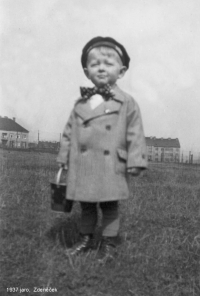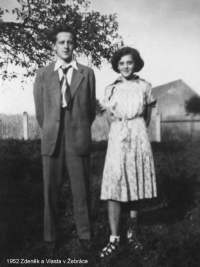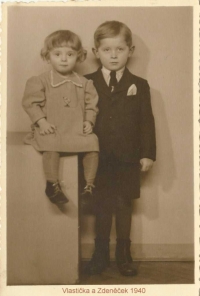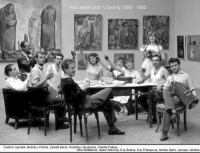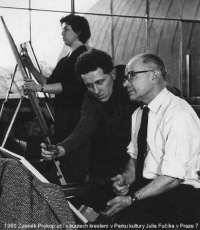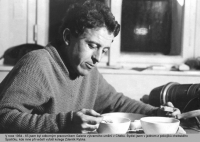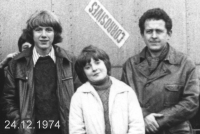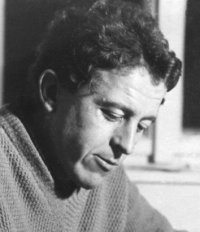Freedom is an illusion

Download image
Zdeněk Prokop was born on October 13, 1934 in Uzhhorod. In 1939, due to growing conflicts in the country, the family had to leave Subcarpathian Russia and settled in Prague in the apartment of their mother’s father, the former Czechoslovak legionary Josef Pelc. After graduating from primary school, Zdeněk Prokop trained as a locksmith by an official decision and worked at Barrandov Film Studios. At the same time, he attended evening drawing courses, which helped him to be accepted at the Academy of Fine Arts in Prague in 1954. After graduating in 1960, he received a scholarship and devoted himself mainly to drawing rehearsals and performing ballet ensembles. In 1962, he won the first contract in the field of restoration of murals, to which he subsequently devoted practically his entire professional life. He also gave lectures in associations and museums on modern art and installed exhibitions. In private, he still devoted himself to drawing, but he was not allowed to exhibit or sell his works because it did not meet the requirements of socialist realism. On August 21, 1968, he took part in protests against the occupation of the Warsaw Pact troops in Prague, but this did not affect his work as a restorer. Likewise, the Velvet Revolution in 1989 did not significantly affect his work. Zdeněk Prokop was married twice, he had two sons with his first wife Eva, and one daughter with his second wife Zdena.
